- Home
- Lorenzo Carcaterra
The Wolf: A Novel Page 17
The Wolf: A Novel Read online
Page 17
“I’ll pay you $250,000 a month. In return, all I need to know is what Raza is asking you to get him and when and where it’s coming in,” I said. “I cannot keep you alive, not when you’re that close to him. And frankly, even if I could, I doubt I would. If you go down, then I make the same offer to the runner who replaces you.”
“So I walk on hot coals for a quarter a million a month,” Santos said. “Say that works for one, maybe two hauls. He’s no moron, Raza, sharp as a farmer’s machete, from what I can tell. He catches on, it’s me feeding you? All that extra money you throw my way gets me is a nice coffin and a top-tier mariachi band. And he will catch on.”
“It’s a short-term job,” I told Santos. “Either I make sure of that or Raza will. But whatever happens, you walk away with money from both ends without having to expend yourself.”
“Raza ain’t the only terrorist I ride the rap with,” Santos said. “Word gets out I was doing a double tap, my business on that end dries up.”
“That’s your concern, not mine,” I said. “Won’t be the first time you played one side against another. I have a feeling you’ll figure a way to work it out.”
“I take a pass on your offer,” Santos said, “what happens then?”
“I’m not talking to you because I’m lonely,” I said. “You pass on the offer, that’s your business. My driver will drop you off at the train station. You make your way back to Naples.”
“No bad blood?”
I shook my head. “But I can’t promise Raza won’t know you and I had a conversation, and he might be curious to know what it was about,” I said. “What takes place from that point will be between you and him.”
“So, I read it right, you puttin’ out a take-it-or-leave-it deal?”
I glanced out the window at a clear view of miles of well-tended farmland, the occasional stone house dotting the landscape. “We’re about ten minutes from Salerno,” I said. “I’ll need an answer by the time we get there.”
“No need for a ticking clock,” Santos said. “I’m in.”
I kept looking out at the passing countryside, farmland now giving way to row after row of vineyards, a line of workers tending to the grapes, a sprinkler system keeping the ground drenched. These lands had been harvested for centuries, the only intrusion being attacks from outside forces. I imagine there is a certain serenity that comes from living a safe life. Working the land, waiting through the seasons as the crops ripen and then die.
“The car will stop across from the station,” I said. “The trunk will be open. Inside will be a backpack. Belongs to you. Your first payment is in the pack. There’s also a number in there for you to call when you have information to send my way. Learn the number and burn the paper. If anyone but you uses that number, it would not be good if I found out about it.”
Santos nodded. “Do you need my number?” he asked.
“I have your number,” I said.
Chapter 35
Paris, France
Vladimir sat in an ornate chair admiring the massive lobby of the George V Hotel, from the crystal chandeliers to the marble floor to the oil paintings hanging on the walls, resting within faux golden frames. He had always admired French taste, its shameless excess. Their upper class had a unique style, whether it was clothing, jewelry, cars, or the way they decorated their homes. But he also admired the way they didn’t publicly flaunt their wealth, unlike his fellow Russians, who flung cash around as if it were a day away from being outlawed. He saw the behavior as crude and dangerous, since nothing attracted unwanted attention like the flashing of large sums of money.
“The Wolf is moving much faster than we originally anticipated,” Klaus Marni said.
Marni was one of two men sitting across the table from Vladimir, each having vodka on the rocks. He was one of Vladimir’s most trusted advisors and a dependable assassin. He had turned to petty crime at a young age and soon came to the attention of Klensko, a gangster known for turning street money thousands into legally earned millions. Klensko organized the best of Russia’s young thugs and brought them into his ranks by offering high-end salaries and a percentage of profits. “He acted like a CEO of a major corporation,” Uncle Carlo told me during one of the late night talks we had as I was being prepped to take over the reins. “He paid them enough money not to bolt to other outfits and gave them input into the day-to-day dealings. You had to compare Klensko to anybody, it would be to Luciano.”
It was Klensko who put Marni together with Vladimir, and the two proved a formidable and lethal combination as they rose through the Russian criminal ranks at a rocket pace. And it was Marni who brought the third man sitting at the table into their crew. Ruslan Holt was a Canadian-born street orphan who bounced around a number of European cities as a teenager before making his way to Russia with a fake passport after a drunken argument in a London nightclub left two men dead and Ruslan’s prints all over the crime scene. He thrived in the Russian underworld, where the police could be ignored and he could operate with impunity so long as he remembered to kick back a portion of any profits he earned to the local bosses in his district.
The three men, sitting in the safe confines of one of the finest hotels in the world, were now in control of nearly forty percent of the vast Russian criminal organization. They had risen through the ranks together, gathering profits and disposing of enemies at an alarming pace, brushing past the old guard and bringing fresh vitality to the Russian criminal landscape, thriving even in a chaotic new world order where the Soviet Union became a distant and forlorn memory. From the beginning they had set their sites on dominating all of organized crime, not just the vast and extremely profitable Russian end. The growth of terrorism and the declared war launched by the various branches of the criminal universe was the opening for which they had patiently waited for decades.
“He’s doing what we would do in his place,” Vladimir said. “He knows that to wait for a terrorist to make the first move would be catastrophic. He is looking to take the fight out of him even before the fight begins.”
“At that, he might succeed,” Holt said. “But the other organizations were lukewarm to his war proposal, giving their consent more out of respect than anything else. They are helping him, but from a distance.”
“That’s why he teamed up with the Strega,” Marni said.
He was in his forties, though his thick gray hair and beard gave him an older appearance. He was an expert marksman with both a handgun and high-powered rifle and was a workout fanatic, spending as much as three hours a day lifting weights and pounding a treadmill.
“Nothing can interfere with the terrorist’s plans,” Vladimir said. “If he fails, so much will be wasted.”
Holt shrugged. “He’s good.”
He was the physical opposite of Marni, preferring food and wine to sweating inside poorly ventilated gyms, his body soft and round, covered by oversize shirts and jackets. He was, at thirty-six, a year younger than Vladimir and in charge of the rough end of the organization, skilled at planning assassinations and kidnappings that ended with the ransom secured and the hostage left for dead. He also oversaw the $3 billion a year sex trade, making buys or organizing lifts of girls as young as twelve and selling them on the lucrative underground markets of Asia and the Middle East. Any girl not sold into sexual slavery would either be killed or doled out to Russian pimps to work the streets of their districts.
Of the three at that small table, Vladimir was the most feared and respected in organized crime circles.
Marni was admired for his business skills and ability to spot on-the-rise talent. He was trusted within the Russian mob and wielded an impressive international Rolodex crammed with names on both sides of the coin—criminal or legitimate.
Holt, instead, was hated by any who crossed his path. He had been targeted by international law enforcement for a decade, and each time either the charge wasn’t strong enough to hold up in court or the witness disappeared within weeks of his arrest. Russian
outfits steered clear of him unless they had no choice but to work a deal. No crime boss had anything good to say about him, and weren’t shy about expressing their disgust.
“But having the two Italians on his ass? Might be more than Raza can handle,” Marni said.
“Has he asked for help?” Holt asked.
“He has only asked for financing,” Vladimir said. “And as you can tell if you’ve been reading the papers, he’s put at the very least a portion of that money to good use.”
“We are paying him for more than a few newspaper and magazine headlines and a mention on the evening news,” Marni said.
“The chaos I hoped to see happen is already taking place,” Vladimir said. “Terrorists have been emboldened and the attacks that have taken place this summer have put a major dent on tourism and all that flows from it. The press has taken note, and when they write about it, the public reacts. These days fear spreads at a much faster rate.”
“Does Raza have anyone who would know how to take the Italians down?” Holt asked.
“There are syndicates who cannot take on either one,” Vladimir said. “Both?” He shook his head.
“But terrorism relies as much on luck as it does planning,” he added. “Raza has the element of surprise in his favor. No one outside his inner circle—not the Italians, not even us—has knowledge as to where he plans to strike. As much as I despise being kept in the dark, it is the best part of Raza’s plan. By keeping everyone unaware of his intentions, he maintains his advantage.”
“What if he no longer had to worry about the Italians?” Holt asked.
“That would benefit Raza,” Vladimir said. “On the other hand, it might rally the other crime organizations to make a move, as it would suggest to them an existent threat. And we are their first and only suspects.”
“So?” Holt said. He shrugged his shoulders, his designer labeled clothes wasted on his bulky physique.
“I’m not eager to do battle with every crime outfit in the world, Ruslan,” Vladimir said, always quick to lose his temper when pushed by his old friend. “At least not yet.”
“That’s assuming every group we’re thinking about will jump into the fight,” Marni said, adding logic to Holt’s argument. “So far only a few have shown a taste for this war. If the Italians were out of the way, they might decide maybe now’s not the time to go all-out. Let the dust settle, see how deep the terrorists cut into their action before they make their move.”
“You know it upsets me to agree with Marni,” Holt said, “but he has a good point. And there is the fact that if they do indeed get eager for battle, they would do so knowing it would be against us—not a few hundred terrorists. That might give them pause.”
Vladimir sat back in the plush chair, gazing at a portrait of a soft-faced duke from centuries past. “If it is to be done, we need to eliminate both at the same time,” he said after several moments. “If we choose one over the other, the survivor will come after us with all the force they can bring.”
“They see each other, no?” Marni asked. “My understanding is they are close.”
“It would need to be in a public place,” Holt said. “Her home in Naples is as secure as a military compound. And on his own grounds, the Wolf is virtually untouchable.”
“Where do they meet when they get together?” Vladimir asked.
“Hotel suites, usually,” Holt said. “Heavily guarded. When he’s in Naples, they meet at her house. The Wolf has several homes and he’s hard to pin down. Makes it a point to move around quite a bit, more so since his wife and daughters were murdered.”
“He has taken her out to dinner on a few occasions,” Marni said. “I’ve read that in one of the files we have on them. The Strega owns several restaurants, mostly in Naples, a few in Rome. If they venture out for a meal, my guess is it would be at one of those locations.”
“They both disdain bodyguards,” Vladimir said. “Is that still true now that they’ve joined forces?”
“They may not like them, but they have them,” Holt said. “The Strega has two men who never let her out of their sight. Where she goes, they go, and they only make an appearance if there’s trouble. She feels invulnerable in Naples, but these two have been around her since she was a teenager, and her father insists they be her shadows.”
“And the Wolf?” Vladimir asked.
“His son is heavily guarded night and day,” Marni said. “As are his homes and offices. As for himself, he only appears to go it alone. At least from the few times we’ve seen him out in public. The only time he seems to be guarded is when he is with his son. But we all know from our own experience the best bodyguards stay invisible until it’s time to draw a weapon.”
“They are partners now and will need to meet more frequently,” Vladimir said. “If, as you say, the Strega believes no one will make attempts on her while she is in Naples, then that might be an ideal place to make our move.”
“How soon before Raza’s plan is put in motion?” Marni asked.
“The most recent cash infusion he requested was the largest and the last,” Vladimir said. “So, two weeks? Three?”
“Then we need to make the attempt on the Wolf and the Strega within ten days,” Holt said. “The crime bosses would need to regroup and decide how to proceed, but by the time they come to a decision, Raza will have done his damage.”
“Take them both out,” Vladimir said, “first opening you have. Send only our best assassins, but keep it a small group. They will need to move at a moment’s notice.”
“We could bomb one of her restaurants,” Holt said. “Eliminate the risk of a shootout.”
“I want proof of death,” Vladimir said. “So will the other criminal organizations. Only a bullet gives us that.”
Chapter 36
Naples, Italy
“The police may have found something of interest,” Angela said.
“Is it solid?” I asked.
Angela shrugged. “It came from a detective in Rome,” she said. “It’s not another case to him. He’s invested. Like you.”
“Like me?”
“Had a younger brother on the force,” Angela said, “pretty good with arrests and smoking out terrorists. He was killed a short while back at the airport in Rome.”
“The bomb outside the terminal,” I said. “That was one of Raza’s jobs, about the time he made his deal with Vladimir.”
We were in a corner booth in one of the oldest restaurants in Naples, Mimi alla Ferrovia, a short distance from the courthouse. Every American President since Dwight Eisenhower had eaten a meal there, and their photos, along with those of countless politicians and movie stars, adorned the walls.
Angela had wanted to go out for dinner and didn’t need to convince me. We were in her city and her two top gunmen were somewhere nearby, ready to pounce at a moment’s notice.
A waiter approached and opened a bottle of an expensive red wine. “Just for the lady,” I said to him.
“Bullets are what kill, Vincent,” Angela said. “Not wine. And you’re too much of a gentleman to let a lady drink alone.”
I glanced up at the waiter and nodded, watching him pour two full glasses after Angela brushed aside the request to taste it.
I stared across the table, the room lit by soft lights and candles, and for an instant Angela looked like the girl I met that summer long ago, a beautiful teenager with a wild heart and a city at her beck and call. She was in a tight black skirt with a matching top. Her thin pearl necklace glowed in the candlelight.
“This cop …”
“Luca Frantoni,” Angela said. “His brother, Remi, was the one who tried and failed to take down the suicide bomber in Rome.”
“Has he given you information in the past?”
“It’s not what you’re thinking,” Angela said. “He’s not on our payroll, or anyone else’s. He passes on information if he thinks it will help him get closer to nailing someone, in this particular case Raza. He knows we’re after him
and so is he. Whoever gets to him brings him down. That’s all he cares about.”
“That wasn’t what I was thinking,” I said. “I was just curious as to how accurate his intel has been in the past.”
“He’s never pointed us in a wrong direction,” Angela said.
“What did he find?”
“Three nights ago Rome antiterror cops broke into a terrorist safe house, right off the Via Veneto, if you can believe it,” she said. “They made three arrests and confiscated a number of laptops. Frantoni recognized one of the three as a Raza cell member, low-tier but who might have been around the group enough to have overheard something that might help.”
“The police didn’t find anything at the last attack site,” I said.
“And what Frantoni got from the associate may not lead to anything, but it’s worth a look.”
“What is it?”
“A sketch book, same in style and design as the one found at the train station,” Angela said, pausing as a waiter put a large bowl filled with lemon chicken and broccoli rabe in front of her. She waited as a second waiter placed a steak pizzialoa and roasted potatoes at my end. We both declined fresh pepper on our meals and sat silently until the waiters were out of earshot. “The cell member told Frantoni the book belonged to Raza.”
“Was there anything in it?”
“Charcoal drawings, just as with the first one,” Angela said. “Replicas of Michelangelo, Caravaggio, and Raphael’s works along with some scrawled notes.”
“Raza loves art,” I said. “It’s the world he hates.”
“It’s what he loves that he may choose to destroy,” Angela said. “If we take away anything from the sketch books, it might be just that.”
We ate in silence for a few moments. I was comfortable around Angela, always had been, and felt free to let my guard down. I hoped I wasn’t making an error by doing so. I don’t trust easily. You don’t reach the top levels of organized crime by giving your trust to anyone, let alone another mob boss. And I could not lose sight of a cold, hard truth—that behind the beauty and charm of the woman across from me was the brutal head of one of the largest criminal organizations in the world. The Camorra was involved in so many areas, legal or very much not legal, that they had long ago earned the nickname “the Octopus” from law enforcement authorities.

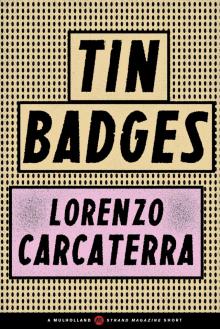 Tin Badges
Tin Badges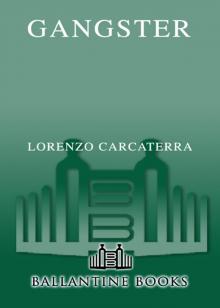 Gangster
Gangster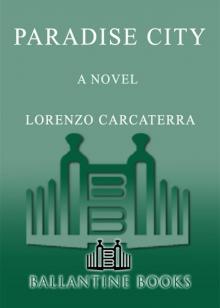 Paradise City
Paradise City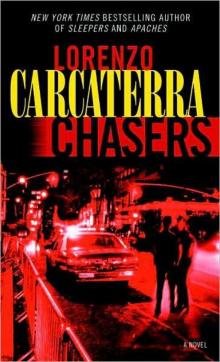 Chasers
Chasers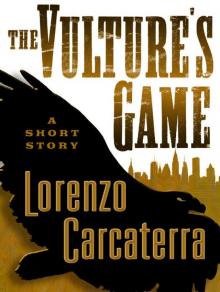 The Vulture's Game
The Vulture's Game Payback
Payback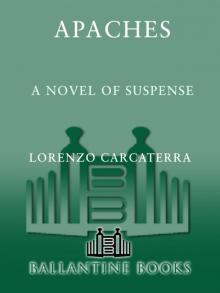 Apaches
Apaches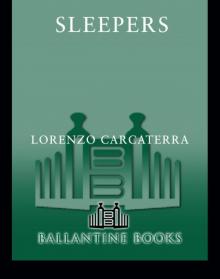 Sleepers
Sleepers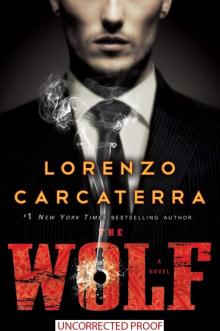 The Wolf
The Wolf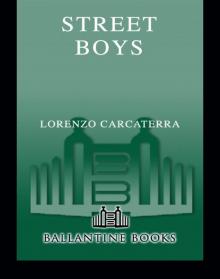 Street Boys
Street Boys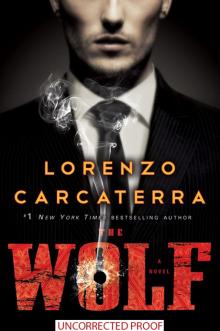 The Wolf: A Novel
The Wolf: A Novel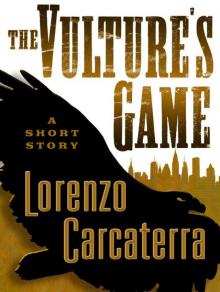 The Vulture's Game (Short Story)
The Vulture's Game (Short Story)